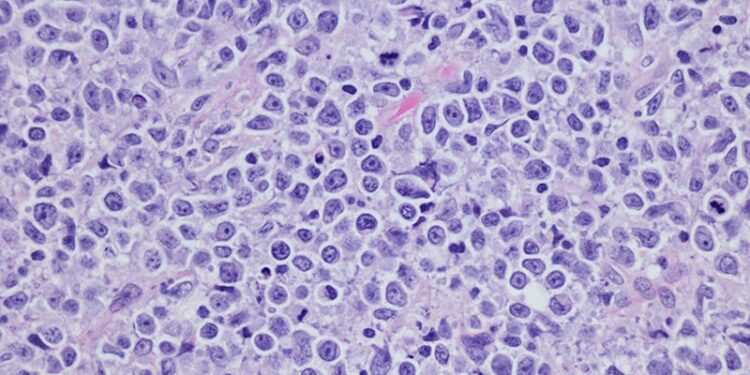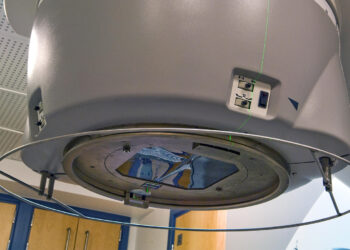Back in 2018, nine pet dogs suffering from various types of cancer participated in the clinical trial of an immunotherapy treatment that was developed by engineering a livestock virus called vesicular stomatitis virus. The best response to the novel drug — which was designed to stimulate the immune system to attack cancer cells — occurred in two boxer dogs with T-cell lymphoma, both of whom went into temporary remission after a single infusion.
The results from the dog trial were submitted to the US Food and Drug Administration as part of a safety package, and the agency later approved the launch of a study of the drug in people with T-cell lymphoma.
That study was part of a collaborative effort among veterinarians and cancer researchers known as “comparative oncology.” The goal of this effort is to leverage a little-known but important fact about dogs: They are susceptible to many of the same cancers that affect people, including some blood cancers.
They develop these cancers naturally, unlike lab animals such as mice and rats, which have to be engineered in some way to have the disease. That makes dogs much more realistic models of many human cancers. What’s more, including pet dogs in clinical trials can be a win-win: The dogs get early access to cutting-edge treatments, while the developers of those drugs gain important insights and data that they can carry over into human trials.
Some types of blood cancer are nearly identical in dogs and people, including the B-cell and T-cell forms of non-Hodgkin lymphoma (NHL). On the human side, the prognosis for patients with NHL has greatly improved in recent years, thanks to the development of the antibody treatment Rituxan (rituximab) and immunotherapies such as chimeric antigen receptor T cells that are engineered to recognize and attack cancer cells. Still, interest remains high in recruiting pet dogs for a wide range of studies aimed not only at developing new drugs and combination treatment strategies but also at understanding the genetic and environmental drivers of lymphoma.
“When we see what’s happened in human medicine, it certainly fills us with hope that we can develop additional tools that can make a difference in lymphoma,” said veterinarian Nicola Mason, professor of medicine and pathobiology at the University of Pennsylvania School of Veterinary Medicine in Philadelphia. “The veterinary, immunology, and oncology communities are getting together to find even better treatments.”
Dogs Drive Insights Into Cancer Genes and Biomarkers
Despite advances in the treatment of NHL in humans, hematology researchers are still searching for new insights that will help to improve methods of therapy and prevention, including genetic abnormalities and other biomarkers that drive development, progression, and response to treatments. Dogs continue to play a major role in this effort.
Understanding the genomic landscape of lymphoma is one goal of comparative oncology studies. For example, earlier this year, an international team of veterinarians and genomics researchers published a study revealing that a specific mutation in the gene H3K27M may be associated with poor survival in dogs with diffuse B-cell lymphoma. While this mutation isn’t often seen in people with NHL, it is common in children with some types of glioma, an aggressive brain tumor.
The H3K27M abnormality is especially interesting because it’s a “hotspot” mutation, meaning it always occurs in the same base pair position and causes the same changes when it’s translated into a protein, explained study co-author Maja Louise Arendt, a researcher in the Department of Medical Biochemistry and Microbiology at Uppsala University in Uppsala, Sweden.
She added that some researchers are pursuing experimental vaccines designed to target hotspot mutations, and she believes research in dogs could help inform this effort. “Even when the mutation that’s found doesn’t play a role in the same type of cancer in dogs and humans, the dog is still a valuable comparative model,” she said. “And translational research will benefit both species because if a therapy that’s developed from the research benefits one species with a mutation, there’s a high likelihood it will also benefit another species.”
Some comparative oncology studies are aimed at understanding side effects of cancer treatments. One such study, led by veterinarians at Colorado State University in Fort Collins, Colorado, examined the impact of the chemotherapy drugs vincristine and prednisolone on the gut microbiota of dogs being treated for lymphoma. The drugs are part of the mainstay NHL treatment known as CHOP, which typically causes stomach upset in both dogs and people. The researchers identified changes in several populations of gut microbiota in dogs that experienced gastrointestinal complications following a week of chemotherapy.
Further studies could help inform efforts to control side effects of cancer treatments. “Owners of dogs that are going through chemotherapy often ask us if there are any changes they can make to minimize side effects,” said Kristen Weishaar, a veterinarian and clinical trials director at Colorado State University’s Flint Animal Cancer Center. “If we can link microbial changes to significant side effects and then restore those microbes to mitigate the effects, that’s something we could potentially translate to people.”
Learning From Golden Retrievers
One of the most important resources for scientists studying lymphoma in dogs is the Golden Retriever Lifetime Study, a longitudinal research effort led by the Morris Animal Foundation (based in Denver), which is collecting health, environmental, and behavioral data on more than 3000 golden retrievers. In 2023, the foundation announced it had recorded more than 500 cases of cancer in the golden retriever cohort, with lymphoma being among the four most common types of the disease diagnosed.
Dog owners who participate in the study agree to have biologic samples collected from the pups yearly. They also fill out annual questionnaires that reveal details about their pets’ diet, lifestyle, and environment.
The data have been particularly useful for researchers who are studying the impact of environmental factors on lymphoma risk. “We are able to look at dogs with lymphoma the year before they developed the disease to see if there are any specific exposures or DNA damage markers that could have increased their risk,” said veterinarian Lauren Trepanier, professor and assistant dean for Clinical and Translational Research at the University of Wisconsin-Madison School of Veterinary Medicine.
Trepanier has participated in studies using data from the Golden Retriever Lifetime cohort to examine the link between lymphoma and exposure to herbicides, fracking wells, benzene, and other chemical sources. One study published last year found that all dogs studied had measurable amounts of the herbicides glyphosate and 2,4-D in their urine and that 4 of 30 golden retrievers with lymphoma had been exposed to 2,4-D at concentrations shown to be potentially damaging to lymphocytes.
Trepanier said that while additional studies in larger cohorts of dogs will be necessary to confirm associations between environmental exposures and lymphoma, she has no doubt the insights gained will benefit people. “Dogs have higher exposures than people do because they walk on grass without shoes on, they lick their feet, they roll around in household dust. And we know that lymphoma happens earlier in dogs,” she said. “So, if we can show an association between specific chemicals and lymphoma in dogs, that might help us understand how nonsmoking people who don’t have other risks for non-Hodgkin’s lymphoma might be at risk from environmental exposures.”
The scientists managing the Golden Retriever Lifetime Study have genotyped all 3000 enrolled dogs and performed whole genome sequencing on a subset of the dogs, said veterinarian and principal investigator Julia Labadie. “Now researchers are using that data to do genome-wide association studies,” she said. They’re also looking for cancer biomarkers in blood and urine samples that are collected from the dogs each year. “Then we can look back in time to see how early we can find those biomarkers in the dogs,” Labadie said. The findings could lead to new strategies for early detection of lymphoma in both dogs and people, she said.
Improving Immunology for Both Dogs and People
Veterinarians are eager to include dogs in research aimed at developing new immunotherapy strategies for treating lymphoma and other cancers, but some obstacles will need to be overcome. Lymphoma treatments like Rituxan, which targets the protein CD20 on B cells, are human antibodies. Therefore, they can’t be given to dogs because their immune systems would reject them.
Efforts are underway to develop an anti-CD20 drug for dogs. And the National Cancer Institute is leading a trial of three novel drugs designed for dogs that target cytotoxic T-lymphocyte–associated protein 4, a protein on cancer cells that can be blocked to stimulate an immune response to cancer. The drugs are similar to Yervoy (ipilimumab), which is approved to treat several forms of cancer in people.
If those antibodies are approved to treat dogs with lymphoma, they could open the door to a wide range of comparative oncology trials that combine immune-boosting drugs with other immunotherapies, chemotherapy, or targeted therapies, Mason said. “We need to develop the antibodies for dogs first, and then we can start looking at novel combinations that could also inform human treatment.”
While the current funding environment for preclinical cancer research is challenging for veterinarians engaged in comparative oncology studies, most are optimistic that canines will continue to play an important role. “Dogs have normal immune systems, and they’re exposed to the same environment that people are,” Trepanier said. “The dog is a very effective sentinel of cancers that occur in both dogs and people.”
Mason is co-founder of Vetigenics Inc. and serves on the board of VetrixBio and the scientific advisory board of FidoCure, roles that are all compensated with equity. Labadie disclosed having ties with the Purina Institute Global Summit. Arendt, Weishaar, and Trepanier disclosed having no relevant financial relationships.
Source link : https://www.medscape.com/viewarticle/how-pet-dogs-are-helping-advance-lymphoma-breakthroughs-2025a1000cki?src=rss
Author :
Publish date : 2025-05-19 13:29:00
Copyright for syndicated content belongs to the linked Source.














